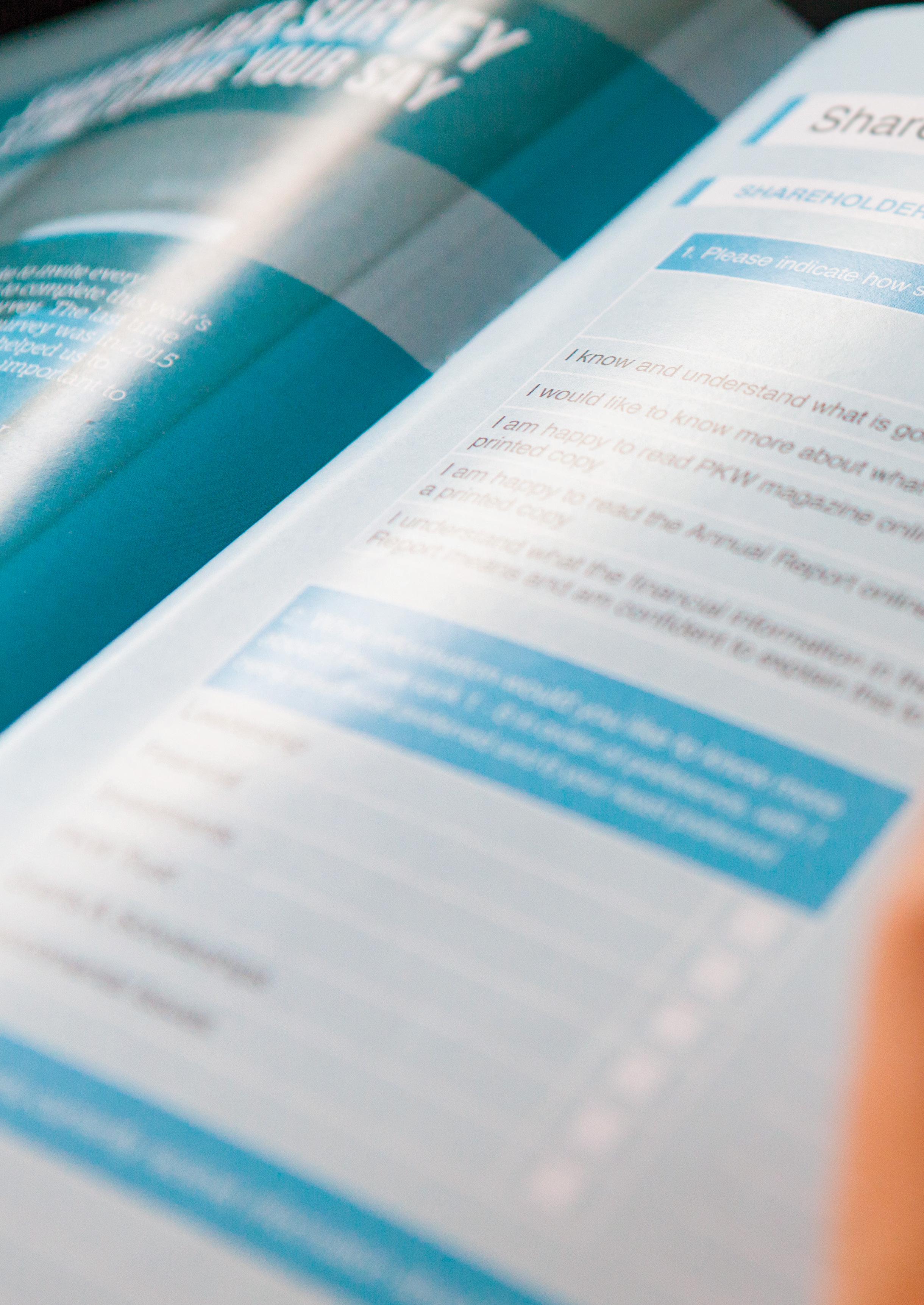
4 minute read
Shareholder survey results give insight
Shareholders are happy with the governance and strategic direction of PKW, according to the results of the bi-annual shareholder survey.
The survey is carried out every two years and asks for feedback about how shareholders feel the business is performing, their opinions on strategic direction, their expectations and what is important to them.
“The survey is a crucial part of the ongoing kōrero we have with shareholders, as it helps to shape governance and management decisions,” explains Puna Wano-Bryant, General Manager Shareholder Engagement. “The Board and the Executive Management team are here to deliver the outcomes the shareholders feel are of benefit to them, so it is important that we know what they are and if their expectations have changed.”
Surveys were sent by email, and shareholders could also complete the questions online via a link published in Whenua Magazine. There were 115 responses received, an increase of 21% on 2018, representing 2.3% of shareholders for whom the Incorporation has contact details.
Overall, the survey results showed that shareholders felt well-informed about PKW and its business activities.
“Of particular note is the increase of 10% in people who indicated they understood the annual financial report,” says Puna, “which is gratifying as we changed the way we presented the figures to help people understand them better last year. We will be continuing to find ways of making business information easier to understand.”
Respondents also indicated they were happy with the Incorporation’s performance over a range of commercial and cultural activities, particularly in the areas of Leadership and Kaitiakitanga, and the strategic direction these areas are taking.
There were several new questions in the survey, one of which asked if shareholders would like to be able to research the connection they have to the whenua. More than half (68%) indicated that they would. Answers in this section also indicated that the commitments outlined in the Kaitiakitanga Strategy echoed shareholder priorities of wishing to access sites of significance to reconnect with land and for cultural harvesting.
The survey also asked for opinions on selling land, and it was clear that shareholders supported the sale of general land, but not that of ancestral whenua, and that proceeds should be used to grow the business.
“We need to retain ancestral land - once sold you never get it back and, more importantly, it links us to our past.”
There were notable changes in how respondents believed profits should be used, with 42% rating Dividend Payments as the highest priority (an increase of 16%). The PKW Trust was rated as the second priority (15% increase), Re-investment next (a 3% decrease) and Debt repayment fourth (18% decrease).
“This information shows how important carrying out these surveys is, as shareholder opinions and viewpoints can change over time, and we need to be sure we know about these changes,” says Puna.
The challenge of unclaimed dividends and what to do about them always attracts much debate. The majority of responses supported the work being done to try and reconnect with missing shareholders, or their whānau or successors.
When asked what should be done with dividends that have missing owners, particularly those that have been held for a long time in some cases all the way back to 1976), there was a variety of answers and suggested solutions. The majority want the incorporation to hold onto the dividends for whānau and do their best to reconnect and reach out to them.
“I would wait -, what’s the rush? Give the missing shareholders’ whānau time to reconnect.”
“Share them out with other shareholders.”
“I would like to acknowledge everyone who responded to the survey,” says Puna. “It is important that we hear the voices of our shareholders and understand what they want from their incorporation and the information the survey has provided will be vital in shaping the future of the business to enable us to continue to grow and sustain our people through prosperity.” Two prizes of $250 will be drawn at the half-yearly hui at Oeo from those who participated in the survey.










